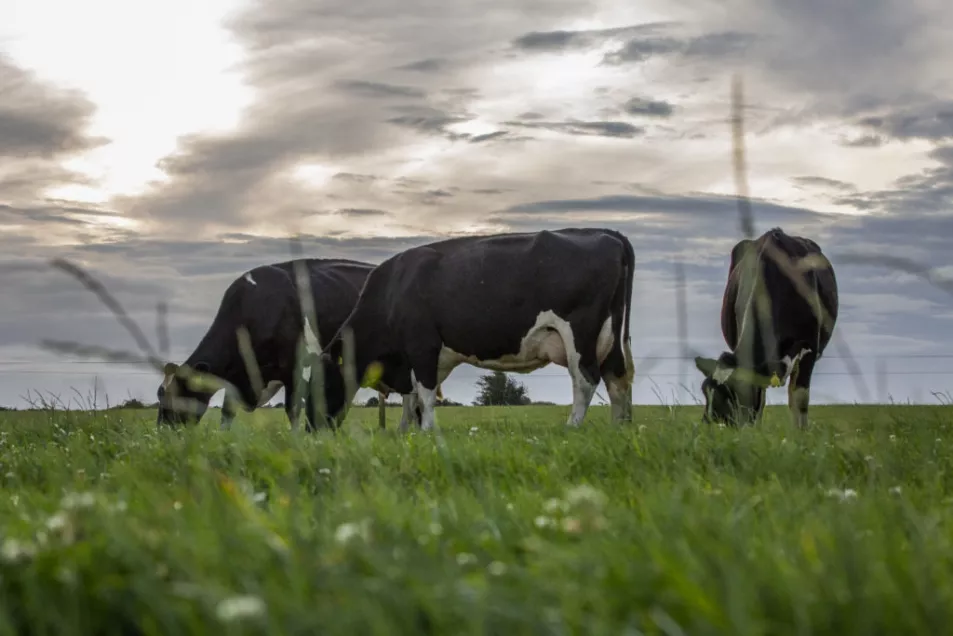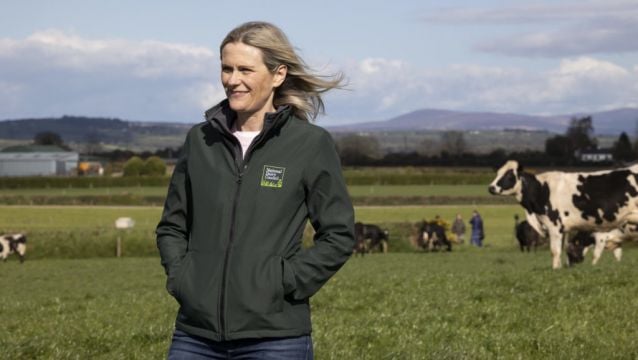Dairy farming is at the heart of Irish life - both social and economic. Ireland has 17,500 family dairy farms, supporting 55,000 Irish jobs, all producing the highest quality milk. Nearly 90 per cent of our dairy produce is exported to over 130 countries and contributes around €6.3 billion to the Irish economy each year.
Our dairy industry is not, however, without its challenges.
The Irish Climate Action Act 2021 requires agriculture to reduce its emissions by 25 per cent by 2030 and the EU Water Framework Directive requires all EU states to achieve a “good” status for their waterways by 2027.
Given that agriculture accounts for over 37 per cent of greenhouse gas emissions in Ireland, and has also been identified as the major contributor to the “moderate” status awarded to many of our rivers, lakes and estuaries, the industry’s environmental impact is a vital concern for our farmers.
Across the country, dairy farmers are employing innovative technologies and practices that are designed to offset agriculture’s footprint, both in terms of GHG emissions and water quality impacts. The goals are challenging, but the industry is making strong progress.
Christopher Tuffy milks 155 cows in north Sligo. He keeps his system as simple as possible, aiming for peak production from pasture, delivering milk that’s high in the fat and protein that makes it such a valuable commodity.
He has re-seeded parts of his farm to include white clover which locks nitrogen in the soil, reducing the need for fertiliser, and where fertiliser is still necessary he has switched to low-emission “protected urea” fertiliser.
“The production of more environmentally-friendly milk has cost us nothing so far,” he says. “It has actually made our system and our farm more profitable, and better run.”
Christopher believes that Irish dairy needs to maintain its current levels of production or there will be no future for young people in the industry. “It’s rural Ireland,” he says. “We are out here in Sligo and we need agriculture. Look at the amount of jobs being supported in rural Ireland by agriculture.
“If I didn’t come home and milk cows I would have little choice but to emigrate. I always wanted to be a farmer but if it weren’t for the opportunity to farm with a decent-sized herd, there’s nothing else in rural Ireland for me.”

Christopher believes that young farmers are particularly attuned to the environmental challenge. “We’re taking a wide variety of steps to reduce our emissions and we’re investing in our future; that’s the way we see it,” he says.
“We are determined to show that we are producing milk at a very high level of quality with comparatively low emissions. Why should we be reducing herd numbers when there are other countries producing milk at a higher carbon cost, and they are not restricting their output?”
Caroline Hanrahan and her husband Ger operate a farm that has been under their family’s stewardship for six generations near Ballyhooly in north Cork. Caroline, who holds a science degree from University College Dublin, is a passionate advocate for dairy farming.
“I think it’s a wonderful way of life,” she says. “And one we are keen to pass on to the next generation. We have five children ourselves, who range from ten to sixteen years of age. It’s good to see the kids helping out on the farm and to see the great work ethic and the care for animals it instils in them.”
Caroline says that she and many farmers across the country are “on board” for the challenges involved in emissions reduction.
“We have been sowing clover for the last four years,” she says, “with about half of our farm in clover currently. It’s proving very effective in reducing the amounts of chemicals we are using on the farm.”
The Hanrahans also keep their breeding policy under active review, using the Economic Breeding Index (EBI) to ensure, as Caroline puts it, “that we are breeding the best. We are using high-scoring bulls and selecting our top cows, resulting in the most efficient choices and highest milk yields possible.
“We are interested in and making efforts in all areas of sustainability,” she says, “including monitoring water quality and promoting biodiversity on our farm. It is hugely important that we farm in the right manner; one that is both economically and environmentally sustainable.”

Niall Moore farms with his wife in Annestown, Co. Waterford. They milk 130 cows using a robotic milking system. Moore acknowledges that there are issues.
“Agriculture as a whole is doing its best and the dairy industry must play a significant role role in areas such as improving water quality. I am personally aware of 420 water-improvement projects where there are advisers in place in different water catchment areas.
Niall is keen to share practical examples and one such is a pilot project run in conjunction with Waterford County Council and scientist Dr Rory Harrington where farmers have reed bed filtration systems built on their farm to deal with yard run off water.
“You have a series of ponds that are planted with reeds,” Niall says, “The topsoil is then put back into the ponds, the reeds are planted in these ponds and your yard run off comes down into each pond. The reeds take out the nitrates, the potassium, and the phosphorus, and the water then filters through that system goes off into another pond and constantly filters down.”
“It started on my uncle’s farm,” he continues. “Willie Moore was the first to build this system and Éamon de Buitléar, famous for all his work in nature, actually drank a glass of water that had gone through his system. It’s proven, it’s constantly tested and it’s a fantastic way of purifying water that might have been contaminated along the way. It also has the added benefit of creating a fantastic eco-system for biodiversity, plants and wildlife on the farm itself.”
Majella McCafferty works as farmer advocacy manager for the National Dairy Council. “My career has been about making farms as sustainable and as profitable as possible. The two ambitions sit by side by side,” she explains.
“All dairy farmers need to be looking at environmental issues,” she says, “and keeping public perceptions of Irish dairy farming front of minds.” She says that her advice to dairy farmers has been consistent, and it centres around one word: efficiency.
“I always advise making all aspects of the farm as efficient as possible,” she says. “You need to look at grassland management, water quality, soil health, everything needs to be in the best possible condition. Farmers also need to be looking at breeding the right type of cow for their farm and the highest performing animals in general.”
Majella is keen to showcase the environmental efforts, and the “farming excellence” that is happening every day on Irish farms. “Modern Irish farmers are balancing science, business, and technical considerations,” she says, “against a backdrop of a true love for the land.
“Irish farmers love their animals and love farming,” she says, “and they demonstrate it every day from the time they get up at 5:30am. I’d encourage anyone to visit a dairy farm to have a look at what is actually happening on the ground.
“Our challenge is to balance the sustainability priorities alongside the human element and the production element of dairy farming – and we’d love the public to better understand the balancing act we are trying to achieve.”
For further information about the things farmers are doing to improve their environmental impact, visit ndc.ie







